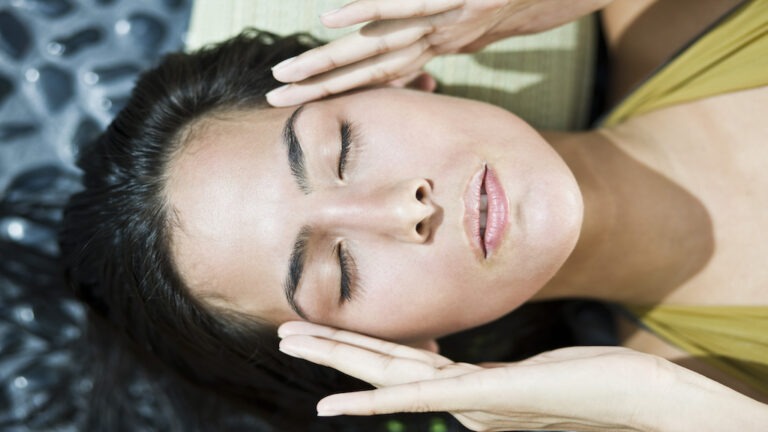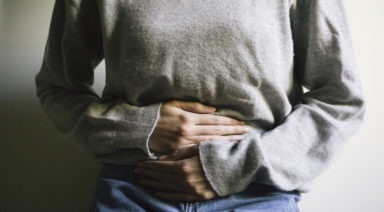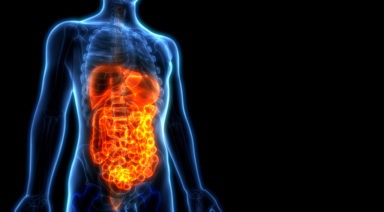Simple Tapping Technique Found to Lower Stress, Boost Immunity

In the latest research on emerging energy healing techniques, one modality is quickly proving itself to be unusually effective in bringing about immediate psychological relief and is done with just the tap of a finger.
Emotional Freedom Techniques — or EFT — are a powerful self-healing practice that seeks to address psychological issues by working with energy channels in the body. Also known as tapping, it combines modern psychological therapies with ancient healing technology.
Specifically, EFT incorporates the principles of acupressure, which involves the application of pressure to specific points in the body — thought for thousands of years to clear blockages along energy channels or meridians.
Dr. Dawson Church is a health and science writer who has been researching, practicing, and teaching EFT for decades.
“EFT’s history goes back thousands of years. Researchers have discovered mummies from Europe that are over 5,000 years old with these tapping points tattooed on their bodies. And acupressure is simply pressure on acupuncture points like we would normally use needling on them. Instead, we use pressure or fingertip tapping on those points.,” Dr. Church said.
“What we do with EFT is we simply organize several of the most potent points of acupuncture into a little ritual so you can remember to tap. The research shows that if you take somebody who’s stressed, the emotional brain — the central part of the brain, the limbic system — is highly active. When you have them tap while remembering a painful incident, it simply calms the brain down in a few seconds.”
Just what is the mechanism at work here?
“We are energy beings. We may be physical beings on the outside, but we have electrons and protons and neutrons and photons and all kinds of energy in our bodies. Energy flows through the body and it flows in these channels. When we tap on our acupressure points, that produces a calming piezoelectric signal that travels through our tissue to the source of our stress and rapidly calms it down,” Dr. Church said.
Recent research has shown that EFT is remarkably effective for addressing psychological issues such as depression and anxiety and is especially helpful in cases of emotional trauma and PTSD.
“When you tap it, your energy flows, it shifts your brain, and you start to release all that emotion, so you’re now remembering all the bad stuff in your life, and you’re giving your brain two conflicting signals. The one signal is: freak out, get stressed, remember the car crash, remember going to war, remember the explosion, remember the terrible divorce, remember the horrible fight,” Dr. Church said.
“So, now your emotional brain is getting one signal from your memory, which is ‘Go into fight or flight.’ Now, it’s going to get the second conflicting signal from acupressure, which is ‘You’re ok, you survived and you’re correcting your energy flows right now.’ When faced with those two mutually exclusive signals, the brain prioritizes the physical signal of safety. When you do that you can remember the event, you’re holding the event still, but you no longer have an emotional reaction to the event, which is why we call it ‘Emotional Freedom Techniques.’”
Given the high rates of PTSD in military veterans, Dr. Church has done a great deal with this vulnerable population- with great success. In a recent study of veterans, EFT was found to have a profound effect on participants’ genes.
“One of the most exciting new fields of science is looking at these tiny molecules called micro-RNAs and they stick to genes. If they adhere to genes they silence those genes and that silencing can have effects on both body and your mind. We did one study of veterans and these veterans got 10 EFT sessions,” Dr. Church said. “We looked at their gene expression (and) we found that they had increased expression of genes that suppress inflammation and boost immunity. So these veterans were having an upturning effect from tapping. We looked deeper at the micro-RNAs and we found that there are little micro-RNAs that are associated with depression. If these micro-RNAs are sticking to the genes you’re more likely to be depressed. In that study, we found those micro-RNAs literally popping off the genes as the levels of depression in those veterans lifted.”
Another fascinating recent study looked at the effects of EFT on various physiological markers, including those having to do with immunity.
“We’ve done several studies with EFT on immunity and in one of them, we found that people meditating and tapping for a week had a dramatic drop in cortisol. Now when cortisol drops, all kinds of positive things in the body rise, and the thing we measured that rose the most was a molecule called immunoglobulin, and it protects you against bacteria and viruses. We found that levels of immunoglobulins in just one week of meditation and tapping rose by 130 percent,” Dr. Church said.
While the tapping technique can be learned through various online resources, Dr. Church cautions that those dealing with serious emotional trauma should work with a trained professional. For Dr. Church, the implications of EFT are far-reaching.
“As we deploy these psychological techniques — psychological therapies — widely, we’re going to see massive drops in anxiety, depression, PTSD, phobias, and other forms of stress, and that will produce an enormous liberation of human potential. Because then people aren’t then functioning with all those epigenetic emotional and physical weights on their lives,” Dr. Church said. “They will then become the people that they were meant to be. So we’re at the beginning of a huge shift in mental health now, just as we were at the beginning of a huge shift in physical health a century ago, and that change will produce massive shifts globally.”
Music Found to Significantly Reduce Pain, Anxiety in Postop Heart Surgeries

Given that heart disease is the leading cause of death in the world, prevention and treatment have never been more important. While conventional cardiology relies heavily on pharmaceuticals in the management of cardiac conditions, music has been shown to have remarkable benefits without any side effects—music as medicine.
Ancient cultures understood the healing benefits of music and integrated it into their promotion of health and healing of disease. But this practice was mostly lost in the rise of western medicine. Today, that connection is gradually being restored as a new wave of research is being done on the healing benefits of music on the heart.
One such recent study found that listening to music is linked to a significant reduction in anxiety and pain after major heart surgery. The researchers concluded that clinicians should consider music for patients scheduled for surgery as it has none of the risks or side effects, and many of the benefits of the drugs most commonly used to aid in post-surgery recovery.




































